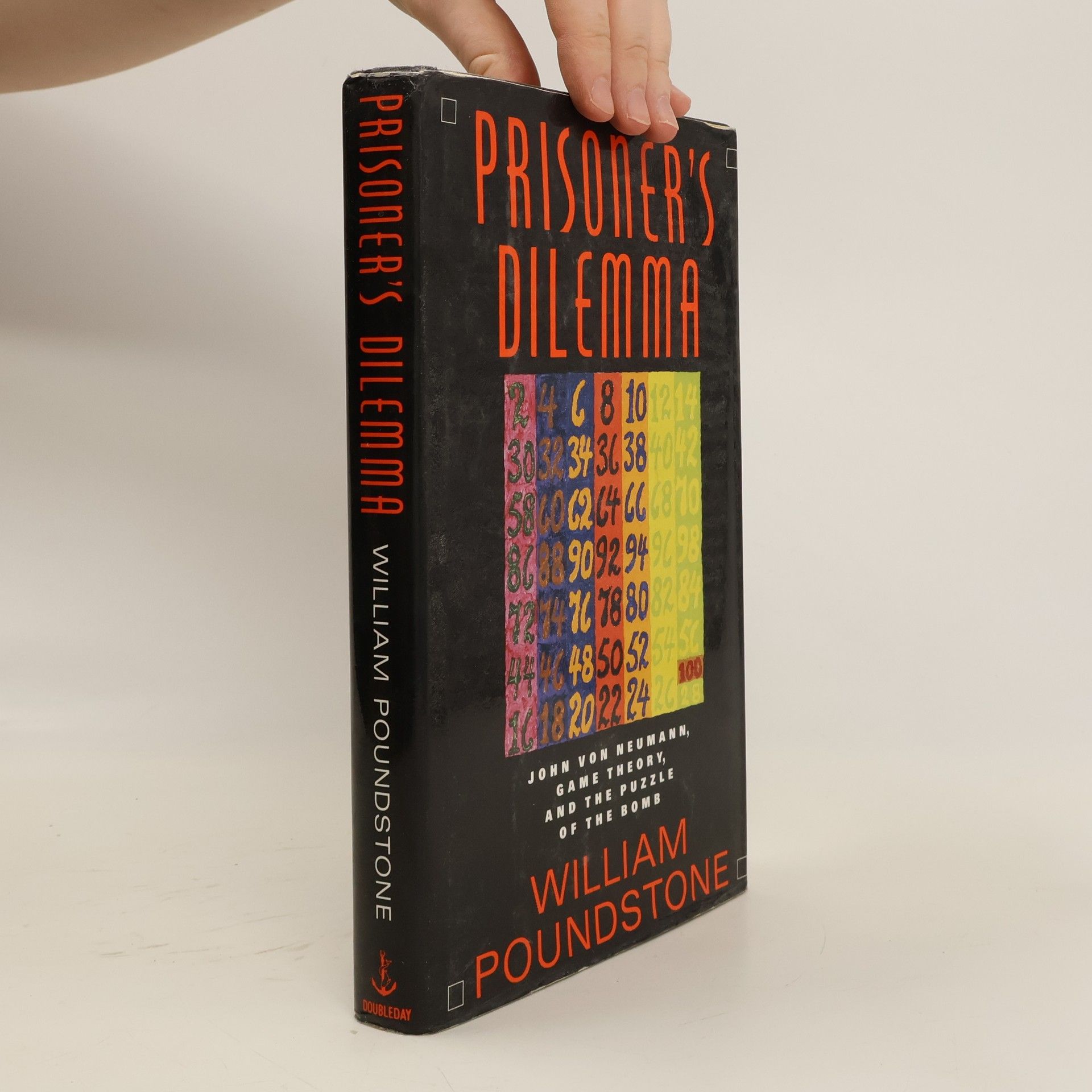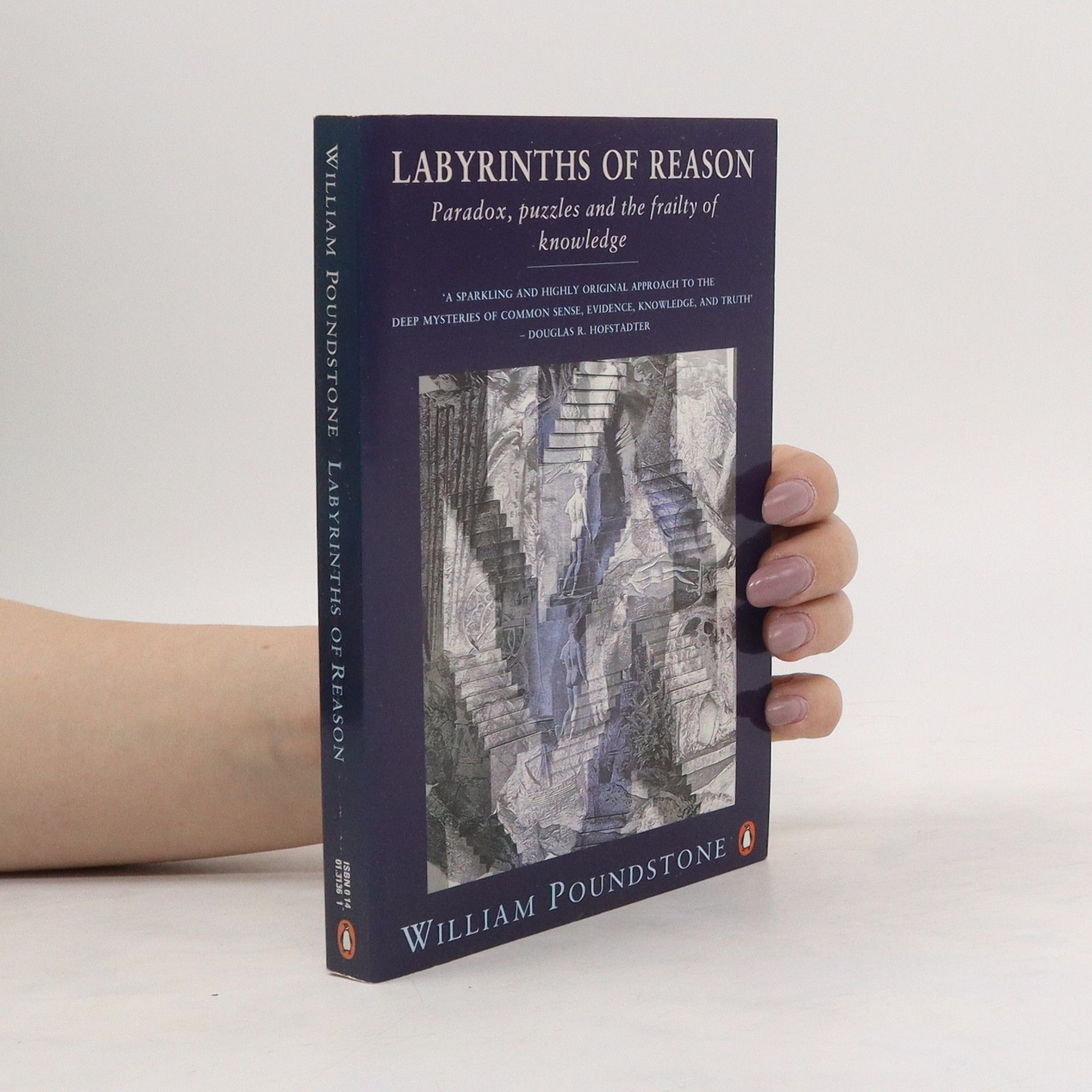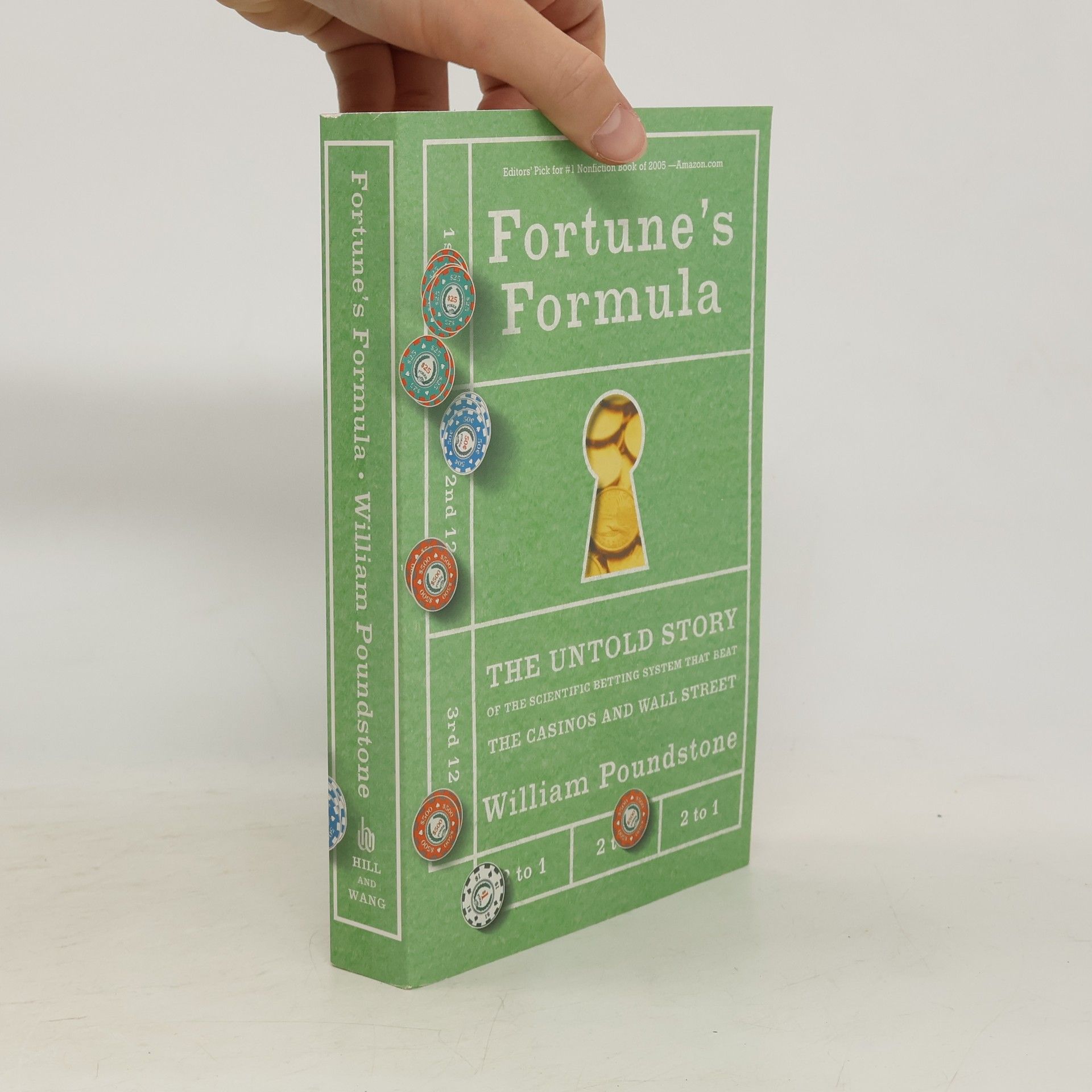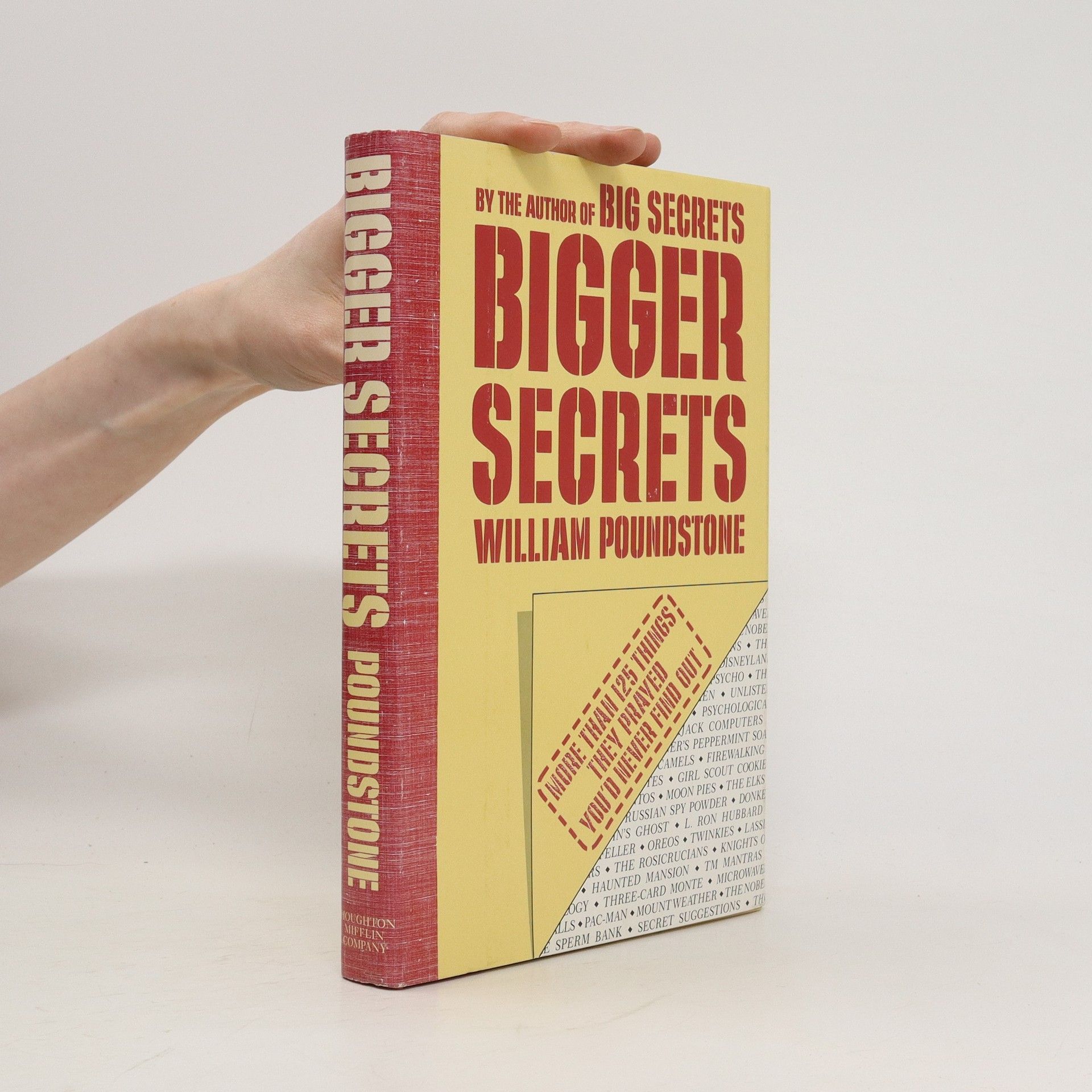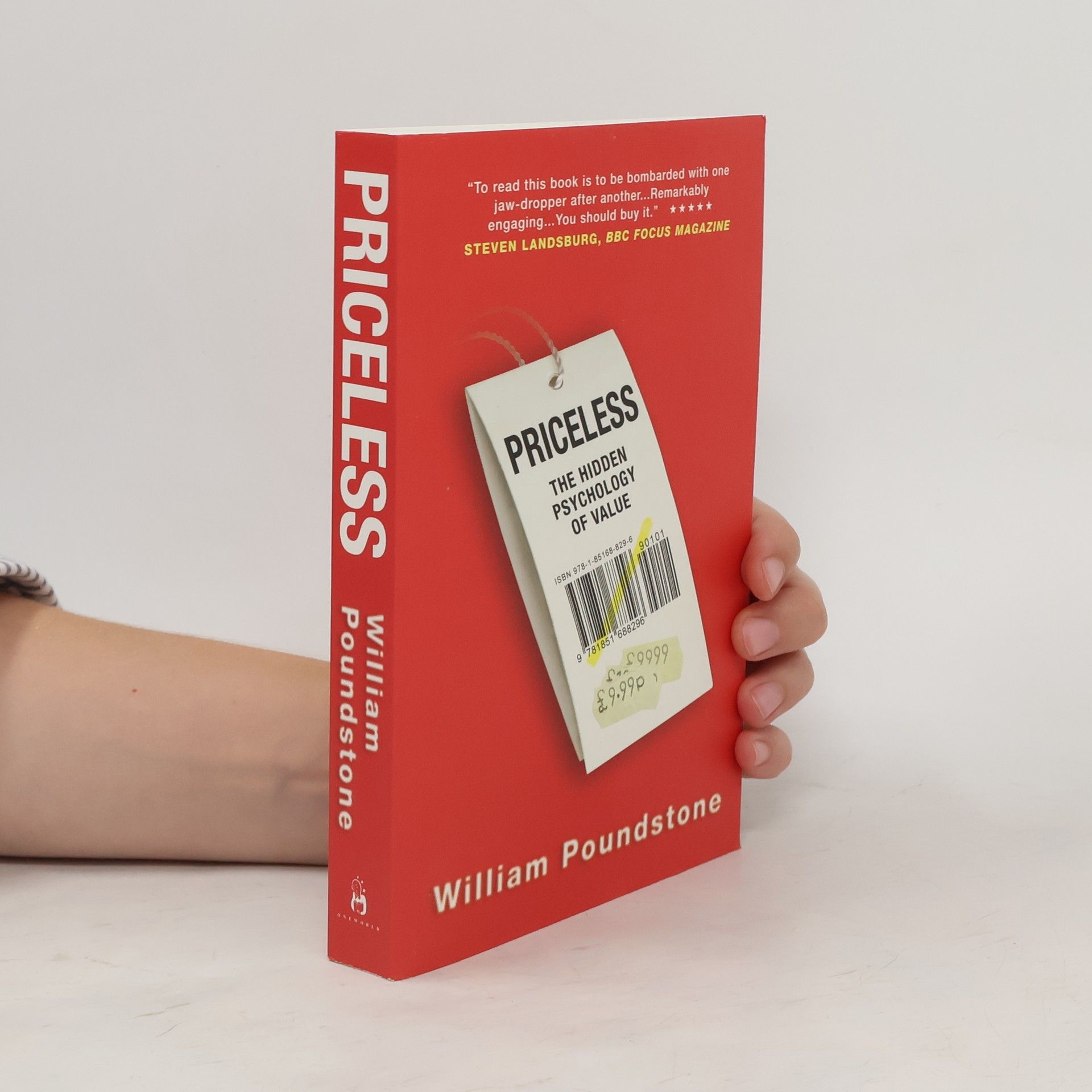El dilema del prisionero
John von Neumann, la teoría de juegos y la bomba
- 504 páginas
- 18 horas de lectura
Los dilemas de la vida real surgen a partir de las diversas maneras en que nuestros intereses individuales se contraponen a los de los demás y a los de la sociedad en general. Muy a menudo nos vemos en la situación de tomar decisiones difíciles, a veces con resultados distintos de los que habíamos esperado. Se plantea entonces la siguiente cuestión, simple y a la vez apremiante: ¿existe un comportamiento racional para cada situación? En "El dilema del prisionero" se analiza este tipo de cuestiones a la luz de la moderna teoría matemática de juegos. William Poundstone presenta en este libro los aspectos fundamentales de tan importante teoría a través del análisis de casos concretos, en su mayoría de evidente relevancia sociológica. Asimismo, a lo largo de la obra se intercalan importantes facetas de la biografía personal y científica del creador de la teoría de juegos: el genial matemático John von Neumann.

